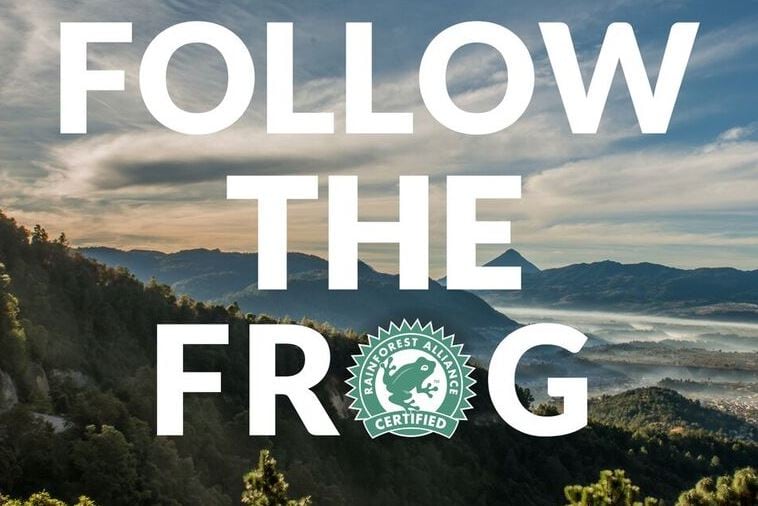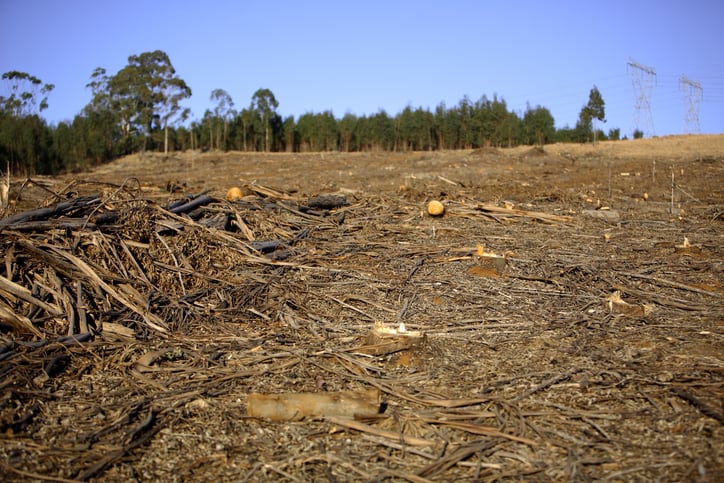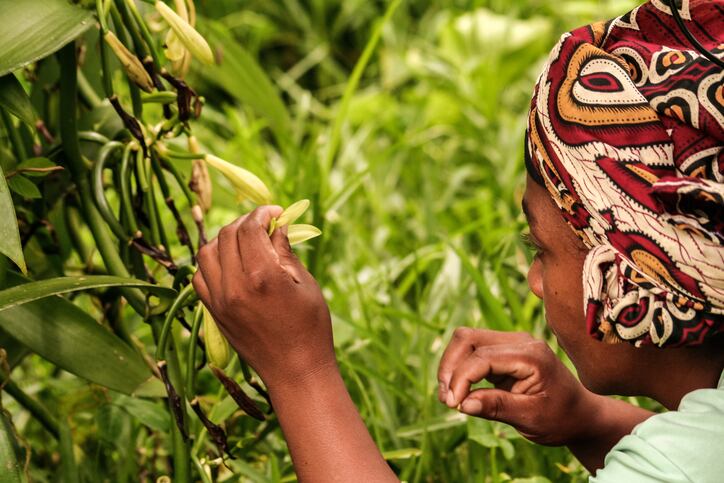Price sensitive consumers are failing to engage with sustainable brands in chocolate, tea and coffee categories which are ‘awash’ with claims online, a Lumina Intelligence report out today (24 July) concluded.
The research looked at online consumer ratings across the three sectors to gauge engagement levels. Analysts found consumer engagement ‘doesn’t improve greatly’ for products with sustainability claims featured on-pack. Indeed, the average number of reviews was ‘significantly lower’ for products making ethical claims, particularly organic.
Lumina stressed that this is ‘at odds’ with the suggestion that consumers are increasingly making purchase decisions based on sustainability issues.
“Lumina’s findings suggest there is disparity between the ethical products consumers are said to crave and their actual sentiment to products.”
Online engagement: company programmes and third-party certification
Online consumer engagement was highest for products that made no sustainability claims, according to Lumina’s data. The researchers revealed products with no claims generated two-times as many reviews as products making certified claims, such as Organic, Fairtrade or Rainforest Alliance.
Products that communicated internal company sustainability standards, such as Mondelez International’s Cocoa Life scheme used for brands including Cadbury, were found to have lower engagement still. These products received five times fewer reviews than certified claims.
Emma Harbour, head of global advocacy at the Rainforest Alliance, suggested that certification schemes are perhaps able to foster a closer connection with consumers because they offer greater credibility and transparency than internal company sustainability standards.
“All investments in sustainability must be welcomed, including company programs, as long as the program or claim are fully transparent, and the impact results are independently verified. These criteria are built into certification, which is why we believe it will remain the backbone of credible sustainability efforts in years to come,” she told FoodNavigator.
The Rainforest Alliance has successfully driven online engagement through high profile initiatives such as its Follow the Frog campaign. Lumina found Rainforest Alliance was the only ethical certification standard where products carrying it had 'higher average reviews than products without claims'.

UK-based Fairtrade Foundation also stressed third-party certification is vital to building consumer trust. Tim Aldred, head of policy at the Fairtrade Foundation, noted that the recent Oxfam ‘Behind the Barcodes’ campaign, focused on British supermarkets, revealed a ‘lack of transparency’ in the food sector and demonstrated the ‘relevance of third-party certification’.
“Fairtrade is about more than the Mark, it’s about actively engaging with consumers to change shopping behaviours, and driving whole system change across the value chain. The additional degree of scrutiny an independent certification offers helps to build consumer trust. The Fairtrade Mark is recognised by 9 out of 10 people in the UK and trusted by 84%,” he told FoodNavigator.
Mission-based brands lift engagement
According to Lumina sustainability analyst Oliver Nieburg, mission-based brands are able to amplify online engagement by telling a clear story that consumers find relatable. He concluded that greater engagement occurs for ethical, storytelling brands promoting a targeted social or environmental cause.
“Mission-led brands tied to an understandable social cause or ingredient origin are bucking the trend.”
For example, he noted that in coffee, UK social enterprise Change Please trains the homeless people to be baristas. The social enterprise has listings at Sainsbury’s and was named in Marketing Week’s 100 Disruptive Brand’s of 2017.
Elsewhere, Amsterdam-based ‘100% slave free’ firm Tony’s Chocolonely grew revenues 22.7% in 2017/18 to €55.1m. The brand achieved national distribution across the US in 2017 and is launching in the UK this year.
Meanwhile, UK-based Divine Chocolate - 45% owned by Ghanaian cocoa cooperative Kuapa Kokoo - promotes its 100% Fairtrade credentials but also has its own ‘owned by cocoa farmers’ and ‘empowering women’ seals.
Many of these mission-based brands are smaller companies founded with the specific goal of tackling a social or environmental ill. Nick Kirby, managing director of FMCG consultancy Archetype Strategy, suggested that in this context necessity has proven itself the mother of invention.
"In a crowded online environment it is challenging for brands to get cut-through, particularly for smaller brands or start-ups that have sustainability at the core of their business ethos but budgets that are too small to build awareness of their sustainable message. Instead of taking a conventional approach to marketing, such brands have got to adopt more engaging approaches such as partnerships with sustainability charities or authorities, using brand ambassadors with the high public presence and the credibility to speak about such issues or stunt activity that is engaging enough to build word of mouth sharing," he told FoodNavigator.
Big brands vying for hearts and minds
It isn’t just smaller companies that are embracing the concept of purpose-led brands. One vocal proponent of this concept is Anglo-Dutch consumer goods giant Unilever.
Unilever’s ‘sustainable living brands’ are generating 75% of the company’s growth. In 2018, these purpose-forward brands account for seven out of Unilever’s top ten brands and grew 69% faster than the rest of the business, compared to 46% in 2017.
“The evidence is clear and compelling that brands with purpose grow,” CEO Alan Jope insisted.
Speaking at the recent Deutsche Bank Global Consumer Conference, Jope claimed two-thirds of consumers around the world say they choose brands because of their stand on social issues, while over 90% of millennials say they would switch brands for one which champions a cause.
“We believe the evidence is clear and compelling that brands with purpose grow. Purpose creates relevance for a brand, it drives talkability, builds penetration and reduces price elasticity. In fact, we believe this so strongly that we are prepared to commit that in the future, every Unilever brand will be a brand with purpose.”
Simplifying complex stories
Sustainability drives frequently grapple with a complex matrix of interconnected issues. Simplicity and transparency are key to effectively communicating them and increasing engagement with consumers.
One example of this can be seen in Unilever’s recently launched ‘Vanilla for Change’ UK marketing campaign.
The group’s sustainable vanilla sourcing programme encompasses multiple moving parts and brings different actors together in partnership, from vanilla-producing communities in Madagascar, to Unilever’s supplier Symrise and NGOs such as Save the Children.
Track your impact
Consumers can use the ‘track your impact’ platform to access details on Wall’s vanilla supply chain and the impact it is having both in Madagascar and the UK. The platform is accessible via an on-pack QR code.

To communicate it effectively, the company has brought it down to a ‘human’ level, Pilar Pedrinelli, Wall’s global purpose & vanilla for change lead at Unilever told FoodNavigator at the launch event two months ago.
“The challenge for this campaign was how to translate [this multifaceted picture] into a story that was simple from a consumer point of view. I am a consumer myself. Talking about sustainability, what I see out there is something that is super complex and something that is super far away from me.
“The challenge I wanted to address is translating it into something that people would care about. The first thing I thought is as human beings we are all interested in humans and stories.”
Typically, certification schemes rally around a particular impact – be it social or environmental. However, there are so many schemes with different messages, there is a risk the story can be lost in the noise.
The Rainforest Alliance’s Harbour stressed that in terms of the proliferation of sustainability standards, ‘impact on the ground is the most important aspect’. Illustrating this point, she pointed to the merger of Rainforest Alliance and UTZ.
“Our merger, which brought together two leading certification systems, will in a sense simplify and narrow the range of ethical trading schemes on the market, but more importantly, it will enable us to form a stronger and more innovative programme to maximise our impact going forwards.
“Forming an alliance and collaborating with other schemes and stakeholders, rather than competing, is how the Rainforest Alliance would like to advance our mission. When ethical schemes with different areas of expertise and strengths collaborate, they can achieve meaningful and impactful change.”
Lumina’s Nieburg also believes simplification could offer a way forward. Higher consumer engagement could be driven by a single label from a body like the International Organization for Standardization (ISO), he suggested.
“The report suggests a path to ensure claims and standards are credible and contribute to sustainable development, where brands are profitable, farmers have a voice, and claims are understandable to the public.”
Increasingly, however, sustainability is becoming a pre-requisite for brands rather than a driver of growth or engagement, Kirby added.
"A real future challenge for brands solely anchored in sustainability is that shoppers and consumers will soon expect this as the new norm from the industry as a whole, meaning that sustainability credentials for brands will simply be a hygiene factor rather that a point of difference. As result, brands can't lose sight of other factors that are important to those that buy and use their products, such as quality, value for money, experience [or] fit to lifestyles."




